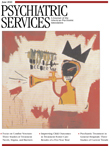Trends in outpatient psychiatric care are in constant flux. Many of the outpatient mental health centers that were created by the Community Mental Health Act of 1963 housed day treatment programs. More recently, day programs have developed a bad reputation for segregating people with severe mental illness and hindering recovery. In New York State there is an initiative to reduce the number of day programs in favor of services that are perceived as more recovery oriented.
Of note, no evidence exists that day programs and recovery-oriented services are mutually exclusive. The literature on recovery emphasizes that it is a personal process—it could mean employment for one person and improved grooming for someone else. In our New York City day program, staff members are well versed in recovery principles. We work in an underserved area with high levels of need and with clients who are mostly from minority groups. In a day program we can reach out to more clients via group therapy, and we can also provide a culturally sensitive environment where clients are encouraged to pursue their personal recovery. Our program employs evidence-based practices, such as family psychoeducation, social skills training, and integrated treatment for co-occurring disorders. In addition, we offer relief for families because we provide not only mental health care but also increased access to medical care and community resources through case management and peer support.
Unfortunately, few case-control studies have evaluated day programs, and certainly none have compared their outcomes with those of clubhouses, to which they are often equated. Clubhouses, perhaps a more cost-effective alternative to day programs, have been touted as an evidence-based, recovery-oriented service, no empirical evidence shows that either type of program is more likely to lead to stagnation and segregation of clients.
Several studies have found positive outcomes when day programs were converted to recovery-oriented supported employment programs. However, as indicated in those reports, special funding was received to implement the conversion, and, most important, the studies did not include persons from culturally diverse minority populations whose ability to speak English is limited.
Although I see merit in "graduating" people with chronic mental illness from day programs, I have concerns about closing one type of program in favor of another, especially when there is no evidence supporting the benefit of doing so. Rather than continuing to regard day programs as relics of the past, it may be fruitful to pursue research on whether contemporary day programs that provide evidence-based and culturally sensitive care can lead to positive outcomes for some clients from minority groups. Closing my New York City day program is not a trend I am eager to follow—yet.

